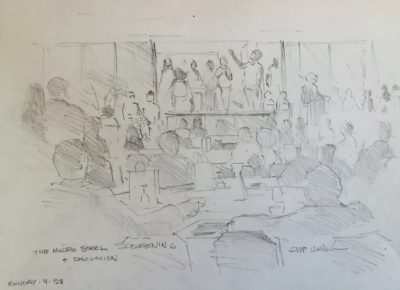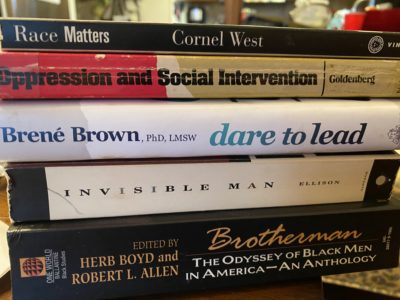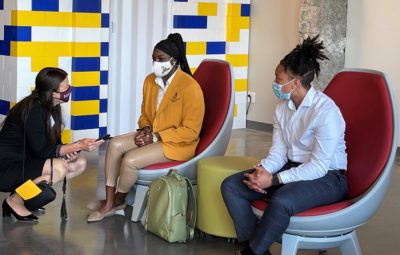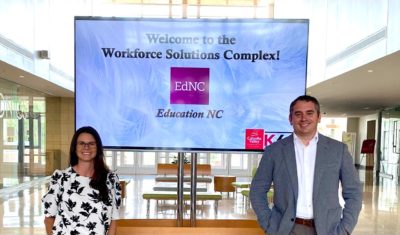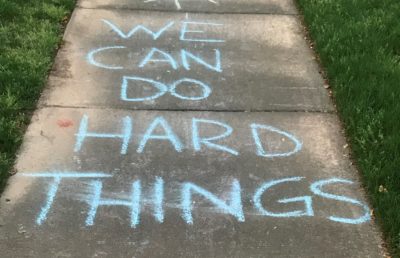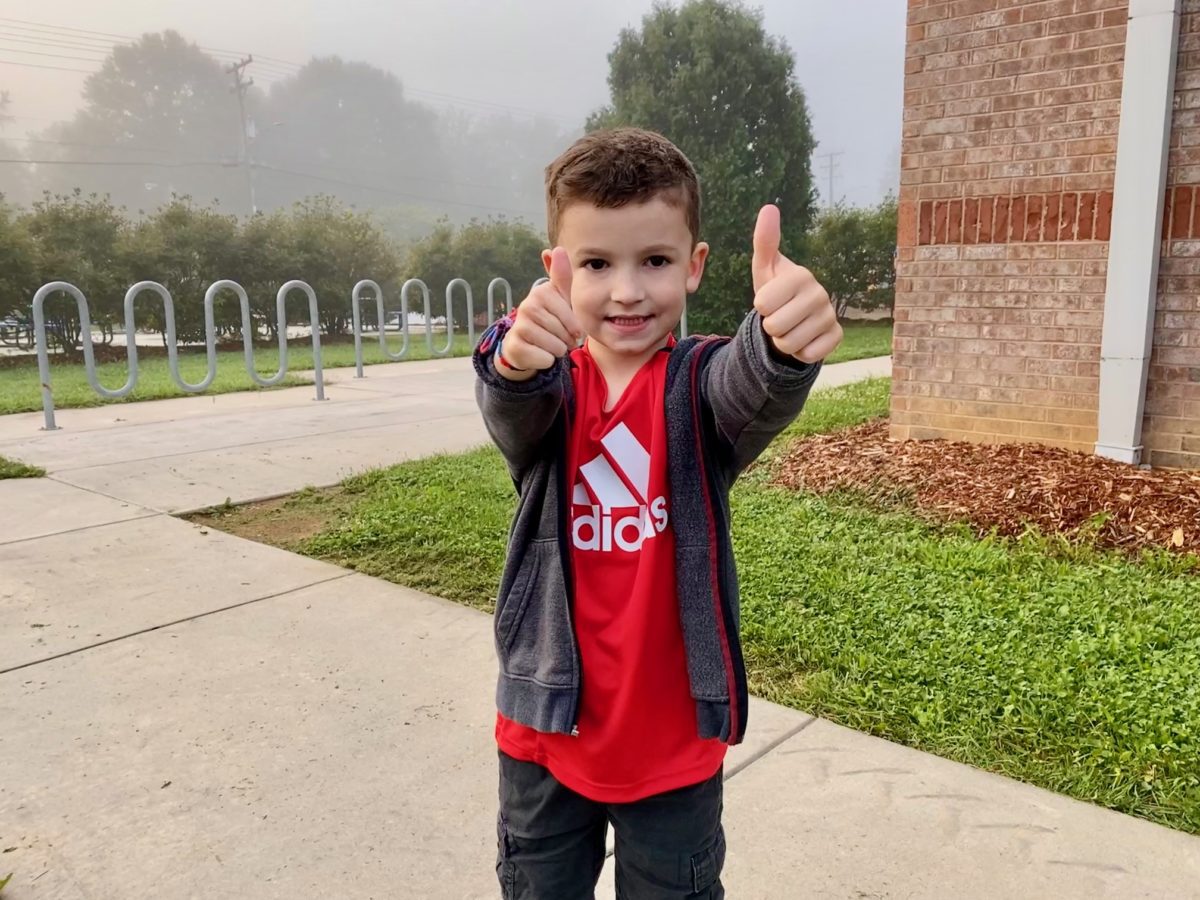

EducationNC’s 2022 Annual Report
Highlights
- We believe it is important for us to show up in person to report the news and conduct public policy research, and we believe it is important for us to bring philanthropists, policymakers, and others in positions of influence to your communities to shrink the distance between those on the ground and those with power.
- Our work doesn’t happen without you, our audience. EdNC has 50,000 impressions on social media a day, we send out 330,000 emails a week, and we had 1,241,530 users and 2,021,811 pageviews in 2022. We publish your perspectives daily.
- We believe diversity, equity, and inclusion in journalism requires day in and day out attention to the intrapersonal, organizational, community, and systems dimensions of our work coupled with an ongoing equity audit.
- We assess our theory of change for direct, widespread, and systemic impact.
EducationNC launched on Jan. 12, 2015 with these core beliefs: it’s all about our students, nothing is more important to the future of North Carolina than their education, and too many stories go untold — stories of teachers, leaders, and programs doing incredible work each and every day in all of our educational settings serving students from birth to career. We started with an audience of zero.
Eight years later, EdNC is the go-to source for essential news, important stories, and your perspectives on education across North Carolina. To date, we have published 7,172 articles lifting up just over 1,350 voices from across our state, collectively writing the story of education in North Carolina.
Our work unfolds in three distinct phases — what happens because we are committed to showing up in person in your communities, the creation and publication of the content coming from those visits, and the difference made as our news, stories, and perspectives find their way out into the world.
Each year, we survey you — our audience — to assess and track our impact. This year, 2,268 of you took our annual survey — an increase of 688 people from last year! Highlights include:
- Forty-two percent of respondents were K-12 teachers, 22% were community college faculty, 8% work in early child care.
- Our respondents were more diverse this year — but not diverse enough — with 25% nonwhite, including 15% Black.
- EdNC prompts discussion; 66% of you discuss things you read on EdNC with your colleagues, and 40% share our articles. Remember when you share our articles on social media (versus just “liking” them), you are extending the reach of our work to those in your orbit, and that makes a difference.
- Twenty-two percent changed your mind because of our work, and 15% of you went on to talk to a policymaker.
- Only 5% of you don’t think we are providing a neutral view of what’s happening in education. In these polarized, politicized times, we take that as a win, especially since some think we lean left and others think we lean right.
“If EdNC didn’t do this important work, it simply would not get done. Important voices and perspectives would go unheard. As a result of the thoughtful approach to storytelling taken by EdNC, stakeholders across our state get a much better understanding of the nuances and complexities of the education landscape, both in policy and in practice.”
— An EdNC reader
We are so much more than we thought we would be, and we want to be so much more than we are.
In June 2022, Bellwether Education Partners released this playbook for impact, describing how organizations need to work across three strategies to implement a theory of change:
Direct Impact: How an organization provides services directly to its target beneficiaries.
Widespread Impact: How an organization builds the capacity of partner organizations to replicate elements of its program model.
Systemic Impact: How an organization shifts mindsets, relationships, and power to in turn shift the policies, practices, and resource flows that create stronger conditions for adoption of an organization’s values, program model, and its ultimate vision for change.
“A Pragmatic Playbook for Impact: Direct, Widespread, and Systemic,” Bellwether Education Partners, June 2022
Just as importantly, the playbook finds that “[t]hese strategies are not mutually exclusive but rather reinforcing and cyclical.”
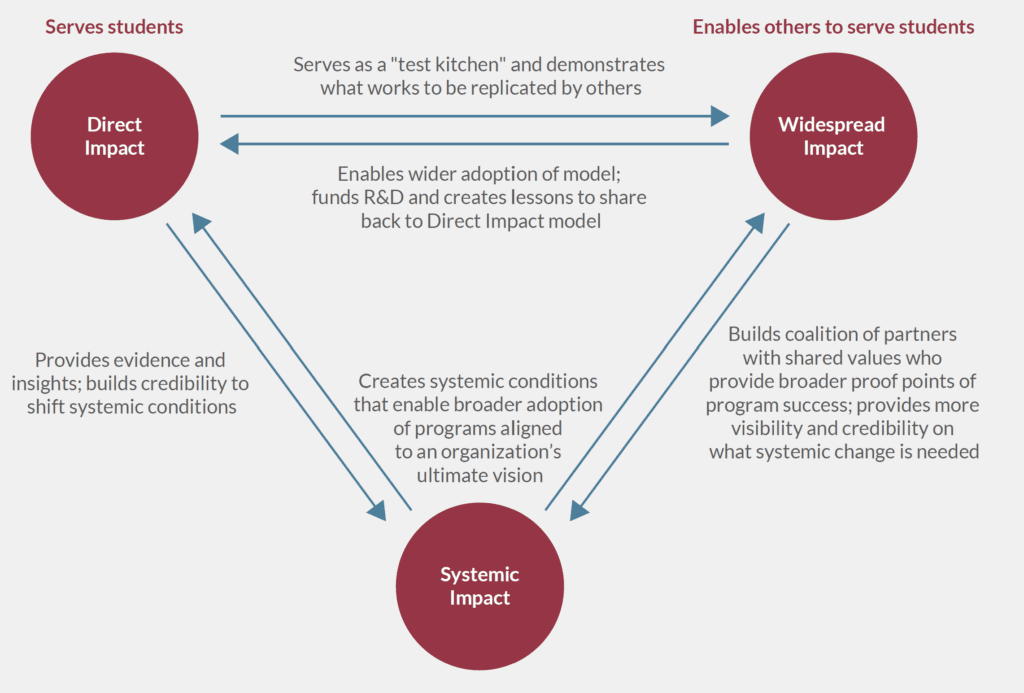

We would take that one step further and note that as those of us working in education — educators, nonprofits, philanthropists, and policymakers — align our direct, widespread, and systemic impact, the capacity for real systems change will kick into high gear.
And not just in education.
EdNC’s Theory of Change
Our theory of change evolves, and this year it includes the following eight drivers of impact.
1) On the ground in your communities
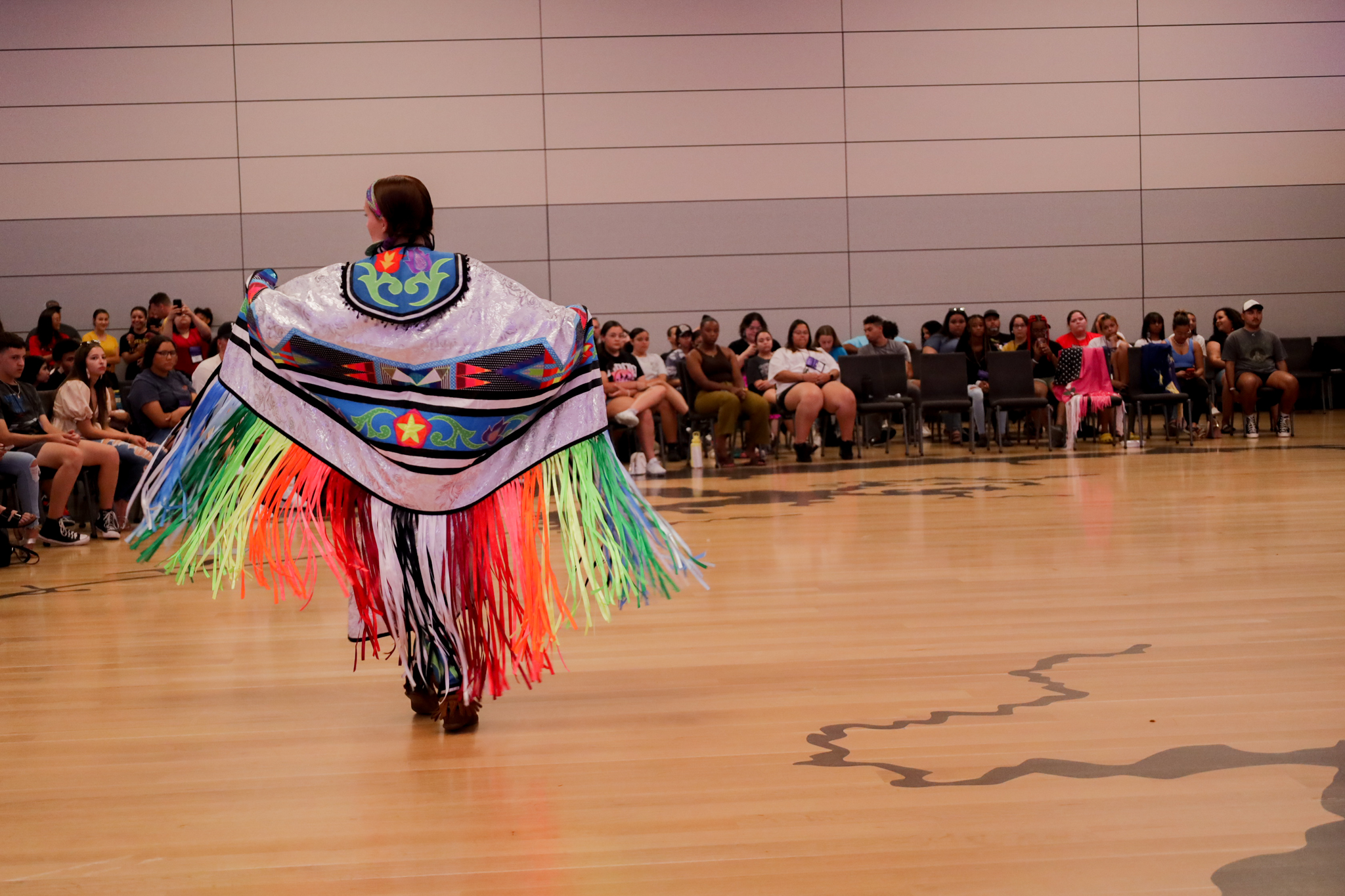

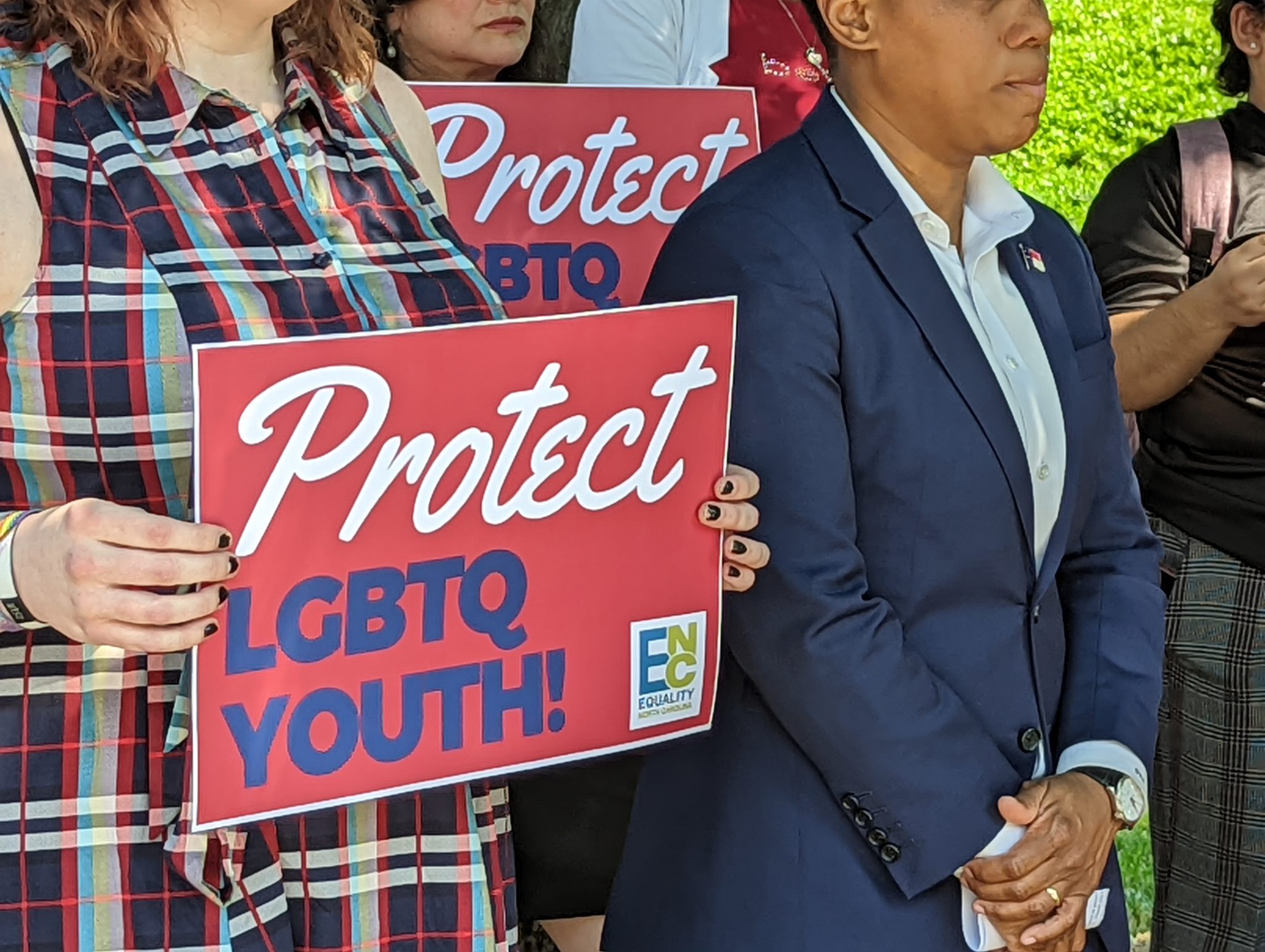

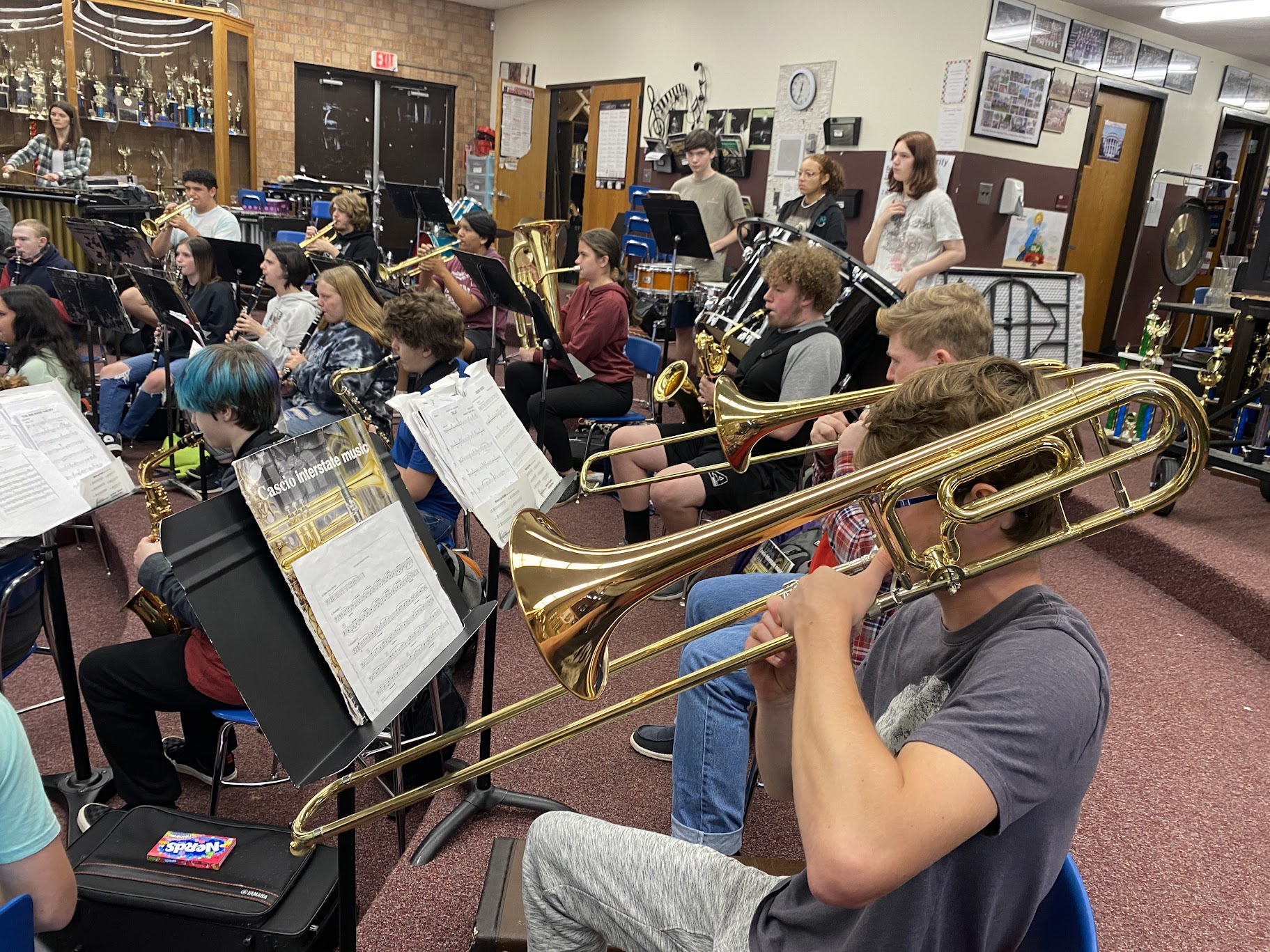

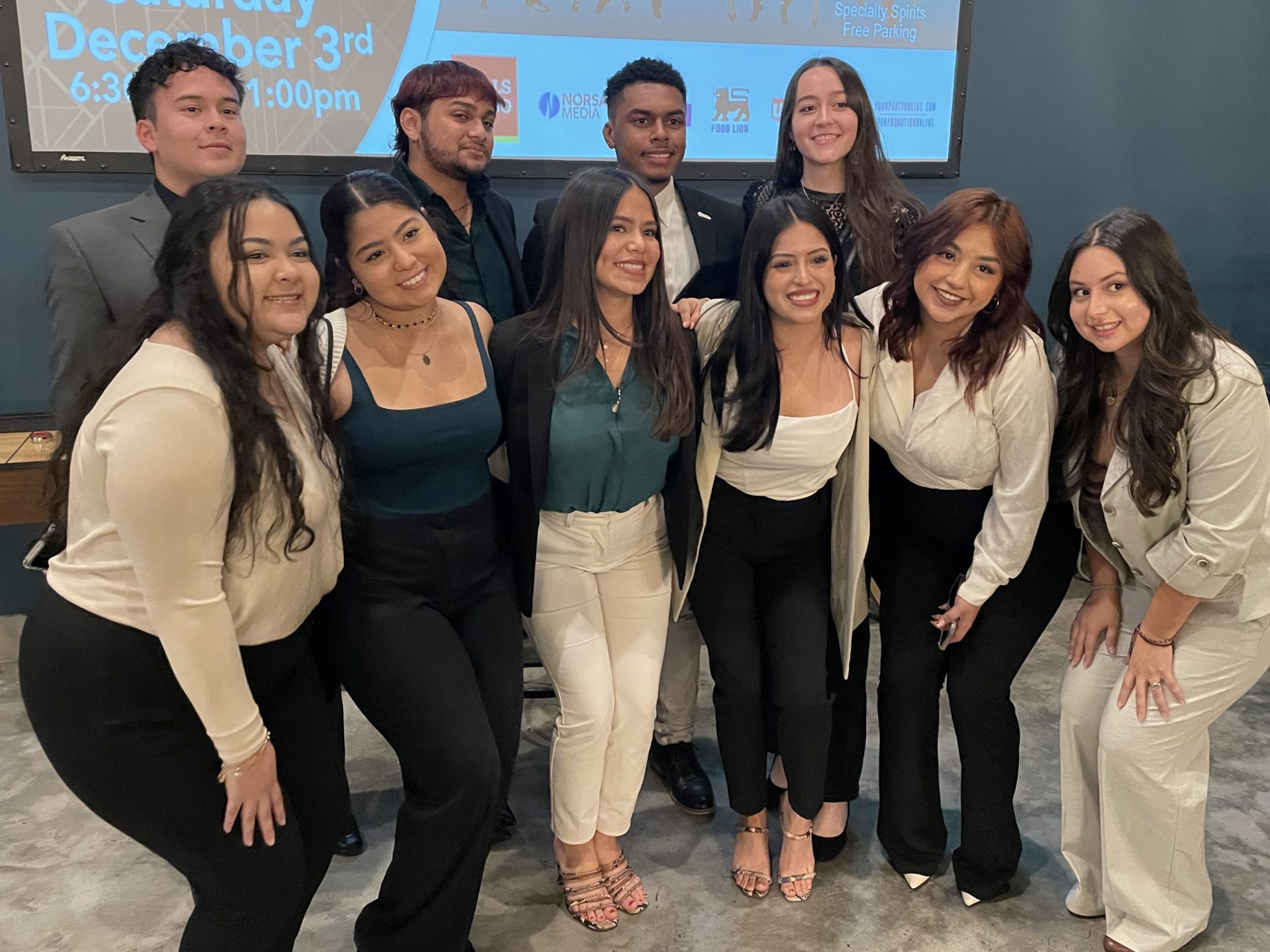

From the beginning of EdNC, showing up in your communities in person has mattered in building and then tightening our relationships with you.
Along the way, we realized it was important not just for us to show up, but for us to bring philanthropists, policymakers, and others in positions of influence to your communities to shrink the distance between those on the ground and those with power.
Journalism has long sought to democratize access to information. We believe these visits democratize relationships. It is a way of sharing privilege. It is a way of opening doors. It is a way to share and spread the pride of place that thrives locally across North Carolina. It provides those in power with their own experiences and stories. It broadens their perspectives, which informs investments and policy change.
Tunde Sotunde, the president and CEO of Blue Cross NC, says, “Every county is uniquely different. When you’ve seen one county, you’ve seen that one county.” And that in and of itself is an important learning.
This year, EdNC wrapped up our 100-county statewide assessment — the only one like it in the country, the Google News Initiative told us — to learn how information moves county-by-county and who has influence over how information moves. This project included building a dashboard that allows us to track the local reach of our articles.
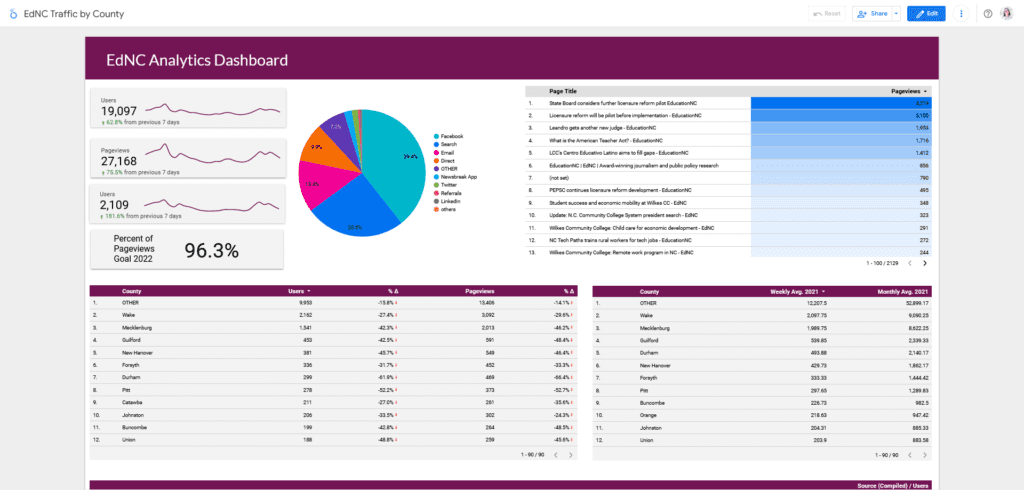

Currently, EdNC is 64 counties in to the Extra Miles Tour with Blue Cross NC, 42 community colleges into visiting the 58 community colleges with the John M. Belk Endowment (which is in addition to our blitz), and in 2022, we completed our first round of visits to all 10 HBCUs.
“We would not be who we are today without our travels alongside the EdNC team. When we began our journey together, no one knew who we were or what we hoped to do. EdNC picked up the phone, started traveling, and opened doors across the state. Our collective travel built trust in ways we could have never accomplished on our own. Most importantly, our travel has shaped every aspect of our work.”
— MC Belk Pilon, the John M. Belk Endowment
2) Journalism as the fourth estate in a democracy
EdNC uses a layered media strategy to engage our audience, starting with social first content as we visit your schools and community colleges.
Our news documents in real time what is happening — when and where and why, providing comprehensive coverage of issues, covering stories over time, and conducting enterprise projects.
Our multimedia capacity allows us to infuse our work with graphics, audiograms, podcasts, videos, and short and long-form documentaries.
In 2022, you cared most about the budget, child nutrition, school performance grades, licensure reform, teacher pay raises, teacher attrition, Leandro, the science of reading, affordable housing, and school discipline.
This year, 184 EdNC articles were republished by other news outlets, allowing our coverage to reach audiences we may not have otherwise reached locally and nationally. Newsletters such as the North Carolina Tribune, the NC Insider, The 74, and Education Commission of the States often point to our content, allowing us to reach key influencers in education and policy. Here are our republication guidelines.
“I can’t even begin to put into words what I am feeling after reading your story. I was in tears. You managed to truly capture what it is we are working so hard to promote. In what has been a very difficult few years, this has reminded me why we do what we do in public education. You captured it, heart and soul in this story, and I can’t thank you enough for all of the work, time and energy that went into this article. Please know what a tremendous difference it has made to all of us.”
— An EdNC teacher reader
3) In-depth research
We conduct in-depth qualitative and quantitative research, policy analysis, and surveys on the issues surfaced by the news.
Our blitz to all 58 community colleges allowed us to conduct research on the economic impact of community colleges, faculty pay, the early childhood workforce, early colleges, career and college promise, and the use of federal COVID dollars.
In 2022, these toolkits on best practices for supporting students who have experienced the death of a caregiver, best practices for preventing and responding to in-school violence, and resources for LGBTQ+ students made a difference. Our reporting on early child care subsidies was referenced in the Hunt-Lee Commission report. We conducted comprehensive research on school board races for the first time. And, in partnership with the N.C. Department of Public Instruction, we continue to highlight promising practices statewide.
“Simple data like who’s running, which seats are open, which are partisan, etc. are hard to find. This is as close to a 1 stop shop as I’ve seen.”
— Chris Cooper, Western Carolina University
EdNC built Reach NC Voices, our surveying and engagement platform, because we believe North Carolina’s policy outcomes will be better and the education community will be stronger if more people’s voices are heard.
Our most recent statewide survey on school performance grades had a record 26,262 respondents. Reach is now used by other outlets around the country.
“EdNC has been endlessly useful in helping me familiarize myself with education in NC! I’m also a parent and just generally a concerned citizen, and I really appreciate that this publication highlights information that never really makes it into more general ‘news’ publications, such as highlighting program wins, people making a difference, new research, etc. I also appreciate the broad reach from early childhood to postsecondary education, and across areas such as equity, diversity, and inclusion to new programs being implemented to make communities more self-sustainable. This publication is truly a gem.”
— A reader who is a researcher
4) Building and engaging our audience
EdNC has 50,000 impressions on social media a day, we send out 330,000 emails a week, and we had 1,241,530 users and 2,021,811 pageviews in 2022. We had 191,718 users who came to our site more than once, and 65,798 who came to us at least three times.
EdNC shares our platform with a commitment that at least 20% of perspectives published are written by people of color. In 2022, we increased our perspectives written by people of color from 38 to 60. Here is information on how to submit a perspective.
We offer free subscriptions to four newsletters: EdDaily, EdWeekly, Awake58, and Early Bird. Most of you — 62% — get your information from us via our newsletters. You can sign up for all of them here.
We redesigned our EdNC.org homepage to provide a better user experience. This redesign led to an 18% increase in clicks on desktop and a 10% increase on mobile.
Here is our audience playbook so your newsroom or nonprofit can replicate our holistic strategy for content distribution, audience growth, and engagement, including our website; email, including newsletters; social media; Reach, our suite of tech tools, including texting and surveys; fostering belonging, including donations and membership; events, including ours and others; brand building, including swag and sponsorships; and offering content to other outlets and platforms.
Collectively, our audience breathes life into the “architecture of participation” we built to tell the stories of your commitment to our students, our state, and our future. Thank you.
5) Tracking the impact of our work and moving the needle on policy change
EdNC has a system for the team to submit the praise they receive and impact they know about for their work on an ongoing basis. This information is reviewed and reported out to the team weekly as part of our reflective practice.
While we are often aware of changes in policy that result from our work, the annual survey helps us understand the impact of our work in your schools and communities.
One reader said, “I saw where a school had hired a LCSW and how they were billing Medicaid for therapy. We built off of that article and hired a therapist for our school district.”
Another reader said, “There was an article about the Long Leaf Commitment grant for students being put into effect. After reading that, I sent it to my program chair and we had a discussion about which students we could get together to apply for the much needed assistance as well as shared the information with our other departments. It was a huge help and great news for our students.”
After reading an article about faculty representation on local boards of trustees for community colleges, a reader told us he was able to ask questions about faculty representation at the community college where he works.
Sometimes moving the needle takes a bit of serendipity. On the blitz, EdNC was able to connect one community college with an opportunity that led to a $985,000 grant.
An external, independent review of our work funded by the Oak Foundation found: “With a significant distance between the education system’s political governance and actual events and activities in our schools, EdNC’s work is critical in helping education stakeholders and the public better understand the various and sometimes complicated issues impacting children’s learning and instruction. Their work helps fill the information gap between the capital and the classroom, and encourages engagement and conversation among those with an interest in education.”
“You’ve built such an amazing organization. It’s nudging so many people from so many organizations at so many different angles.”
— Leslie Boney, former executive director of the Institute for Emerging Issues
6) The broad base of financial support for our work
Our funders breathe life into our work. Here are our supporters by year. Thank you!
7) Increasing leadership capacity statewide
EdNC believes in collective and distributed leadership. We believe in servant leadership, working together as a team of peer experts and thought leaders.
In July 2022, the EdNC team took a collective sabbatical to process, reflect, and attend to the personal and professional experience of showing up in person during COVID even before vaccines were available.
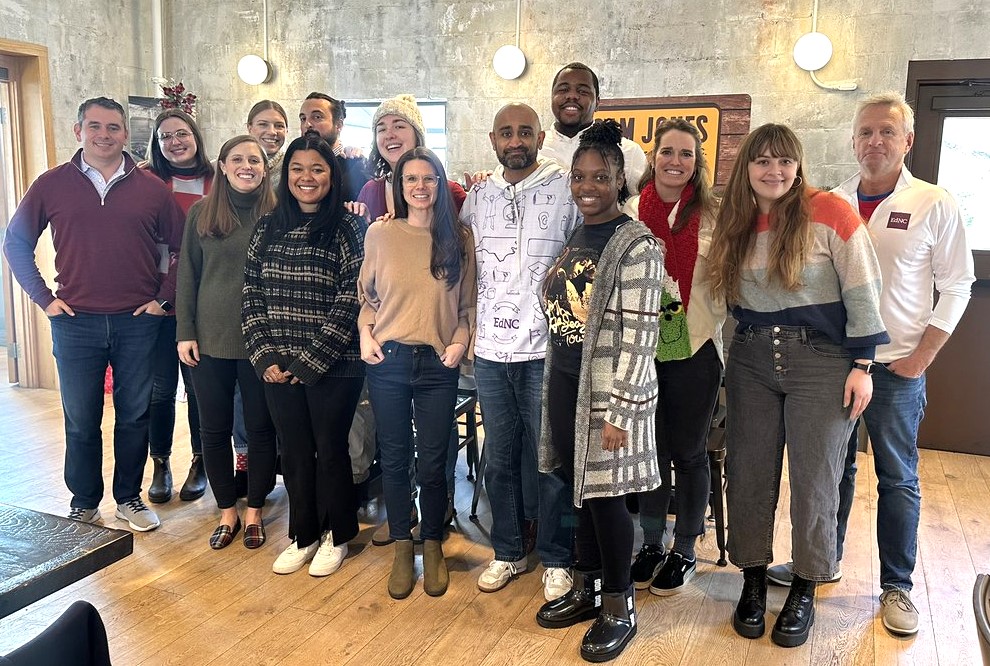

Mebane Rash is the CEO and editor-in-chief. Alex Granados is our senior reporter. Nation Hahn is our director of growth. Liz Bell is our early childhood reporter and perspectives editor. Molly Osborne Urquhart is vice president and director of operations. Caroline Parker is our director of rural storytelling and strategy with a focus on STEM, faith, nutrition, and the arts. Rupen Fofaria is our equity and learning differences reporter. Eric Frederick is our part-time editorial advisor. Emily Thomas is a policy analyst with a focus on community colleges, postsecondary access, and attainment. Anna Pogarcic is our director of content and communications. Alessandra Quattrochi is our executive fellow. Katie Dukes is our early child care policy analyst. Cheyenne McNeill is our communications strategist. Hannah McClellan is a reporter covering community colleges, postsecondary access, and faith. Derick Lee leads our partnerships with leaders of color and organizations committed to equity. Victoria Griffin is our John M. Belk Endowment Fellow.
In 2022, Nation and Emily delivered commencement addresses at community colleges, Cheyenne reported for NPR and completed graduate school, Hannah has her own newsletter on faith, Rupen co-wrote this resource on literacy and equity, and here you can follow Derick’s leadership as JustDaMessenger.
Our work in 2023 will be supported by Lauren Castillo with operations support, Sonia Rao with communications support, Lanie Sorrow with audiogram production, and Landon Weyenberg who keeps a pulse on what is happening in all 100 counties and helps with video production.
Our thanks to Tara Kenchen, Kelley O’Brien, Analisa Sorrells, Robert Kinlaw, Dan Gerlach, Cornell Watson, Bridgette Cyr, Caryn Sterling, Unity Web Agency, and Outfitters4, who play invaluable roles on our team. Many thanks to our attorney, Amanda Martin, and our accountants, Batchelor, Tillery & Roberts, LLP.
EdNC also invests in leadership across the ecosystem, including Carol Bono at LatinxEd, Leshaun Jenkins (who is posting a diary about being a first-year principal on Facebook), and Leia Rollins (who tweets about career and college promise).
“The team at EdNC is passionate, insightful, and talented.”
— Dr. Kebbler Williams, executive director of elementary education and Title 1, Johnston County Public Schools
8) DEI + belonging
The work of diversity, equity, and inclusion (DEI) happens in the small decisions made in the day-to-day. At EdNC, we approach the work intentionally through four dimensions: intrapersonal (this is the “I” work), organizational (this is the “we” work), community presence (this is “our walk”), and systems change (this is “the way” forward). In the coming weeks, we will announce our process for an ongoing equity audit.
About EdNC
EducationNC has been operating online since Jan. 12, 2015, and June 30, 2022 marked the end of our eighth fiscal year. EdNC is a registered trademark with the N.C. Secretary of State.
Our mission is to expand educational opportunities for all students in North Carolina, increase their academic attainment, and improve the performance of the state’s public schools. We provide residents and policymakers with nonpartisan data, research, news, information, and analysis about the major trends, issues, and challenges bearing on education. We gather and disseminate information employing the most effective means of communication, primarily through the Internet. In addition to the content distributed, we encourage an active and connected community of those interested in education policy and practice throughout the state. Our work encourages informed participation and strong leadership on behalf of the students of North Carolina.
Here is our statement on journalistic independence.
Here is our statement on safeguarding children.
EdNC’s Board of Directors and Strategic Council
In 2021, EdNC changed our governance model to align with our diversity, equity, inclusion, and belonging commitment.
Here is who serves on our board and strategic council.
EdNC’s Annual Report and Financials
Here are EdNC’s previous annual reports. Here are EdNC’s audited financial statements and tax returns.
Thank you for your ongoing support of EducationNC. We could not do our work without you. Expect great things from us, and please donate so we can continue to grow our impact in 2023 and beyond.


